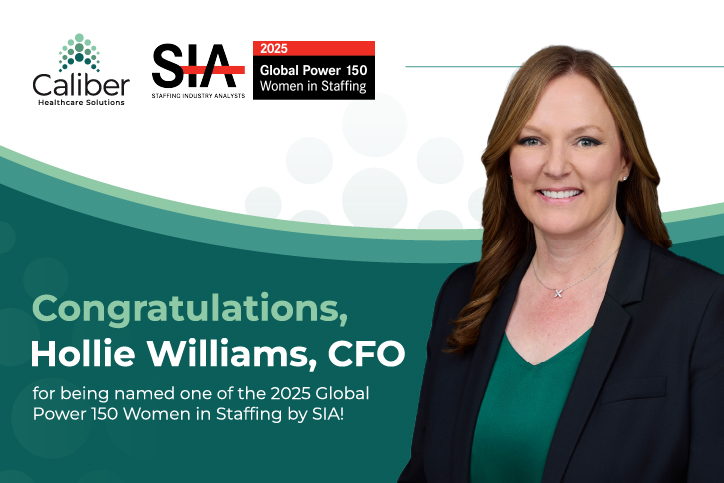
If you’ve found yourself asking whether you need a VMS, an MSP, or both, you’re not alone. In healthcare staffing, the terms can seem interchangeable—but they’re not.
Understanding the difference between a Managed Service Provider (MSP) and a Vendor Management System (VMS) is key to making smart, sustainable workforce decisions. This guide will walk you through what each one does, how they work together, and when you might need them.
An MSP is a third-party service partner that manages a healthcare facility’s external workforce on its behalf. From vendor selection to scheduling, credentialing, and reporting, the MSP becomes your single point of contact for staffing operations.
Think of an MSP as an extension of your internal team. They do the work—coordinating staffing agencies, negotiating rates, filling shifts, tracking performance—so your staff can stay focused on care delivery, not vendor emails.
A VMS is a software platform that helps manage interactions with staffing vendors and contingent workers. It doesn’t provide the people—it provides the tools to track, automate, and analyze those people.
A VMS can store contracts, track time, manage credentialing deadlines, and report on vendor performance. Some healthcare organizations use a VMS directly, while others rely on their MSP to implement and manage it.
Simply put: MSP is the service. VMS is the software.
While they often work together, MSPs and VMS platforms serve distinct roles. Here’s how they compare:
1. Type of Solution
2. Primary Purpose
3. Who Uses It
4. What It Handles
5. Ideal For
In short: the MSP provides the people and process, while the VMS provides the tools to support and track it all.
A VMS alone may work for healthcare organizations with strong internal staffing teams and lower complexity. It provides structure and visibility while keeping control in-house.
An MSP is more hands-on—ideal for healthcare facilities dealing with high vendor volume, recurring shift vacancies, or inconsistent processes. MSPs bring expertise, efficiency, and strategic support. Most modern MSP programs also leverage a VMS to streamline operations further.
In many cases, using both together provides the strongest results: the MSP handles the people and process; the VMS supports it with structure and reporting.
Whether you’re choosing an MSP, a VMS, or both, make sure your partner offers:
MSPs and VMS platforms aren’t competing solutions. They’re complementary.
An MSP gives you strategic service and day-to-day relief. A VMS gives you automation, reporting, and transparency. When they work together, they create a smarter, more resilient approach to healthcare staffing.
At Caliber, we’ve seen the challenges that come with trying to manage multiple vendors, siloed processes, and rising staffing demands. That’s why we're here to help you with your coverage needs.
Ready to simplify your staffing? Reach out to a member of our team today.
.png)
Posted on
February 3, 2026
Caliber Healthcare Solutions, a leading healthcare staffing agency, announced today that it has achieved a rare and significant milestone by winning ClearlyRated’s 2026 Best of Staffing® Client, Talent, and Employee Awards for Service Excellence. This marks the first time in company history that Caliber has earned the Employee Satisfaction Award, completing a first-ever, three-award sweep that reflects excellence across every stakeholder group the firm serves.

Posted on
October 9, 2025
Caliber is proud to announce that our Chief Financial Officer, Hollie Williams, has been named to the Staffing Industry Analysts (SIA) 2025 Global Power 150 Women in Staffing list. This prestigious recognition honors women who are shaping the future of the staffing industry through innovation, leadership, and measurable impact.

Posted on
August 14, 2025
The OB/GYN workforce is at a pivotal moment. Demand is growing, especially in underserved regions. Meanwhile, retirements, burnout, and legislative pressure continue to shrink the supply of practicing physicians.
.png)
Posted on
February 3, 2026
Caliber Healthcare Solutions, a leading healthcare staffing agency, announced today that it has achieved a rare and significant milestone by winning ClearlyRated’s 2026 Best of Staffing® Client, Talent, and Employee Awards for Service Excellence. This marks the first time in company history that Caliber has earned the Employee Satisfaction Award, completing a first-ever, three-award sweep that reflects excellence across every stakeholder group the firm serves.
.png)
Posted on
January 18, 2026
During National CRNA Week 2026 (January 18–24), we recognize and celebrate CRNAs for their critical role in modern healthcare and their lasting impact on patient outcomes nationwide.

Posted on
October 9, 2025
Caliber is proud to announce that our Chief Financial Officer, Hollie Williams, has been named to the Staffing Industry Analysts (SIA) 2025 Global Power 150 Women in Staffing list. This prestigious recognition honors women who are shaping the future of the staffing industry through innovation, leadership, and measurable impact.
.png)
Posted on
February 3, 2026
Caliber Healthcare Solutions, a leading healthcare staffing agency, announced today that it has achieved a rare and significant milestone by winning ClearlyRated’s 2026 Best of Staffing® Client, Talent, and Employee Awards for Service Excellence. This marks the first time in company history that Caliber has earned the Employee Satisfaction Award, completing a first-ever, three-award sweep that reflects excellence across every stakeholder group the firm serves.
.png)
Posted on
January 18, 2026
During National CRNA Week 2026 (January 18–24), we recognize and celebrate CRNAs for their critical role in modern healthcare and their lasting impact on patient outcomes nationwide.

Posted on
August 14, 2025
The OB/GYN workforce is at a pivotal moment. Demand is growing, especially in underserved regions. Meanwhile, retirements, burnout, and legislative pressure continue to shrink the supply of practicing physicians.